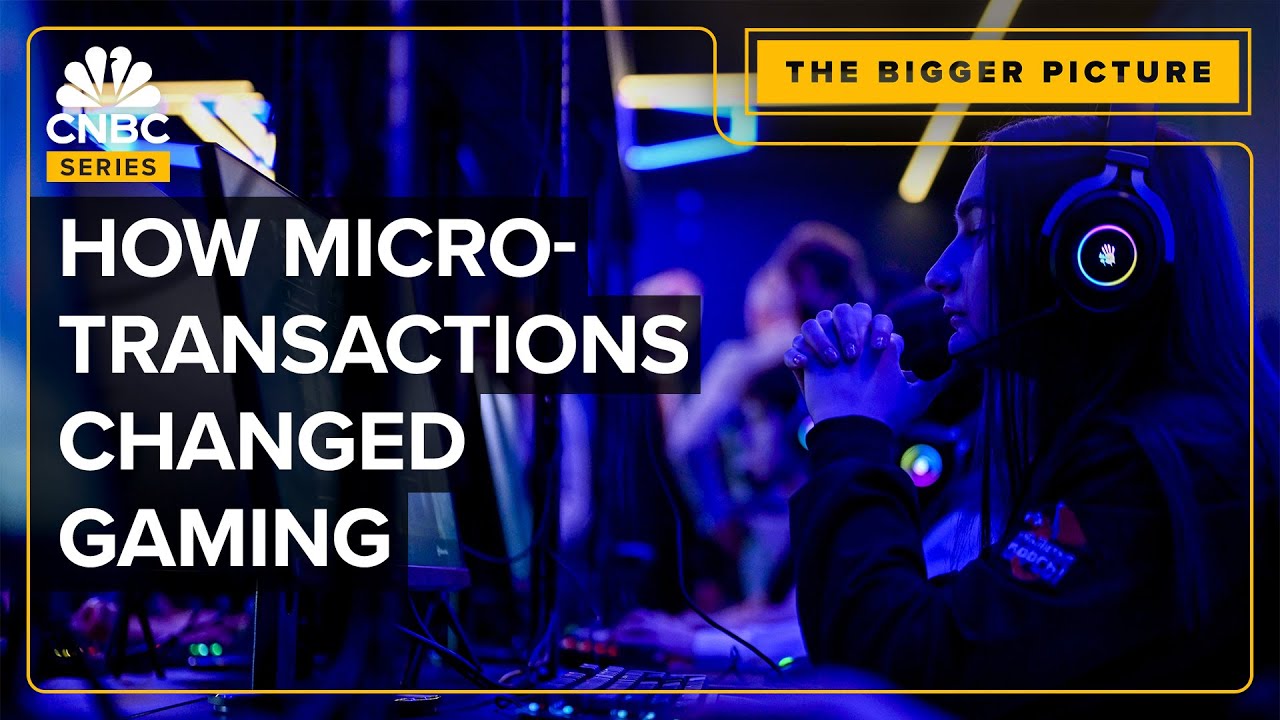People have shown – and this is true of many industries other than video games – that they weight an up-front payment more-highly than later payments. Cell companies wouldn’t sell you a cell phone linked to a plan where they make the cost of the phone back over time with a higher cell service payment if that weren’t true for them as well. Same thing for, say, modems and ISPs.
If people want to have a game where one pays up front, they can get them; there are a bunch of games that don’t have microtransactions. I’ve only played one game that I can think of that I recall having in-game microtransactions – Fallout 76 – and never purchased anything there, because what they sold were cosmetic things that I had no interest in. What I wanted was more gameplay, and they weren’t in the business of selling that. It’s just that a lot of people do buy games that have microtransactions. Oh, and while I don’t typically play free-to-play commercial games, I did try DoTA 2 for a bit, and IIRC there’s some sort of cosmetics-selling thing there.
Is use of microtransactions intrinsically a negative? Well, it means that the company has an incentive to make a game that people want to keep playing, which isn’t true of a game where they make a one-off purchase, and I suppose that that’s a win over a game with an up-front purchase.
It also reduces a publisher’s risk – you aren’t making one giant investment and hoping it sells well. You can scale up and scale down as you see how the game does. Plus, more room to see what players actually want, based on what they get and what they don’t. And the lower the risk, the more-willing someone is to put the money in to develop something. That’s desirable.
That being said, my own preferred model is where one purchases a game with an up-front purchase, then the vendor sells large expansion packs/DLC. That way, if a game does well, one can get more similar content, and it gives the company an incentive to produce more content that I want. And I think that in general, content sold in larger blocks is both more-interesting to me and more-cost-effective than anything obtained via small purchases.
But, hey, I’m not gonna complain if someone else likes games like that.
And I can’t rule out the possibility that a game vendor might make microtransactions that I would like and make me want to play games that do have them. One irritation I had with the Fallout series was the limited selection of radio songs. I liked what was there, but wanted more of the same. There were some third-party people that made mods, but Bethesda never sold new licensed song packs and stations. Same sort of thing for the Grand Theft Auto series, which also does radio stations, or Stellaris, which doesn’t have radio but does have a lot of ambient music, and which one plays a lot of; the music can kind of get old. That’s legitimately something that I’d have paid for, and any purchase would probably qualify as a microtransaction, since it wouldn’t be a very large piece of content. But as far as I can tell, game publishers just don’t try identifying, licensing, and selling supplementary music packs.
I’ve bought some hats in TF2. Not because I wanted to have an edge or something, but because I liked that game. Many MTX games are just not good games to begin with. Especially mobile ones, and they have more success with children due to that. And to secure their habits at that stage of forming their mentality we probably need to judge what’s MTX, is it gambling, should we allow it etc. Because many devs do abuse that shit, and peers at school bully kids who can’t equip themselves like a normal person would. That’s not what we should support.
Greed. Saved you a click.
Yea, that’s how companies work under capitalism. They are not trying to make the best games, they are trying to extract the most money. And apparently enough people are supporting this behaviour.
So exactly how would non-capitalism work here? I am curious to see what kind of games we would have if there were no incentives.
Ever heard of indie games?
Indie devs need to eat too. And they don’t mind spare money to feel basic security while making games. The difference is they have more of that idealized capitalistic competition to even being noticed, so they create original games that you can remember, while AAA companies do have enough publicity they are sure some 10 mils of dumb fucks would buy a pooping simulator if it’s sold by them and follows one of the ironed out formulas.






